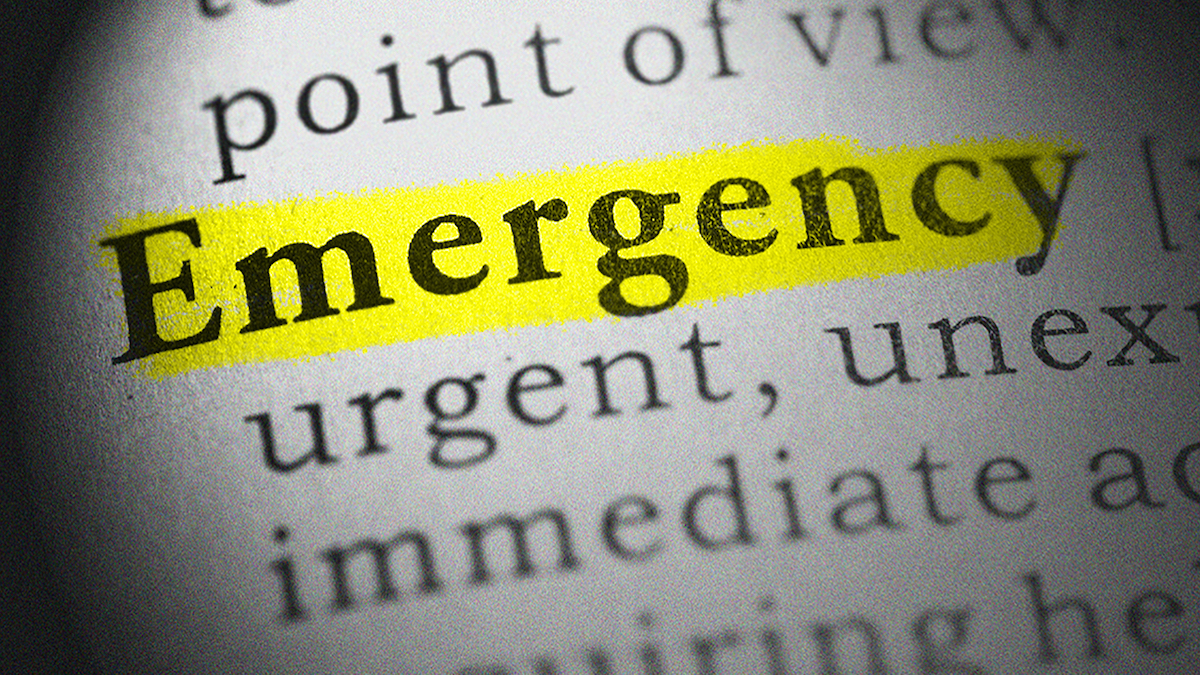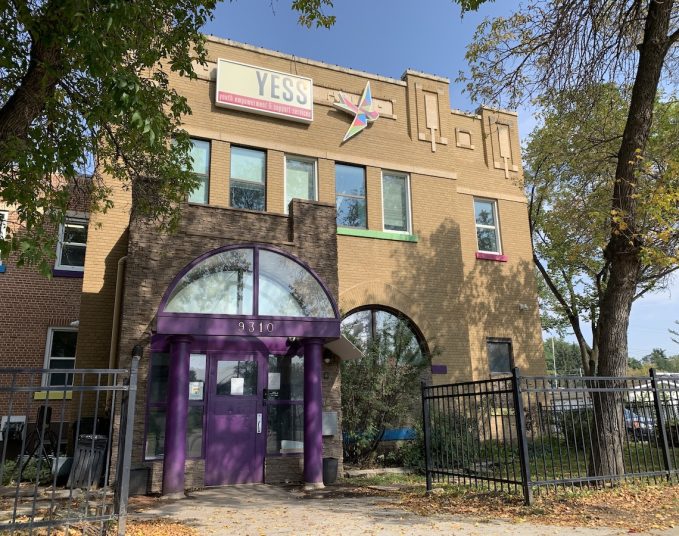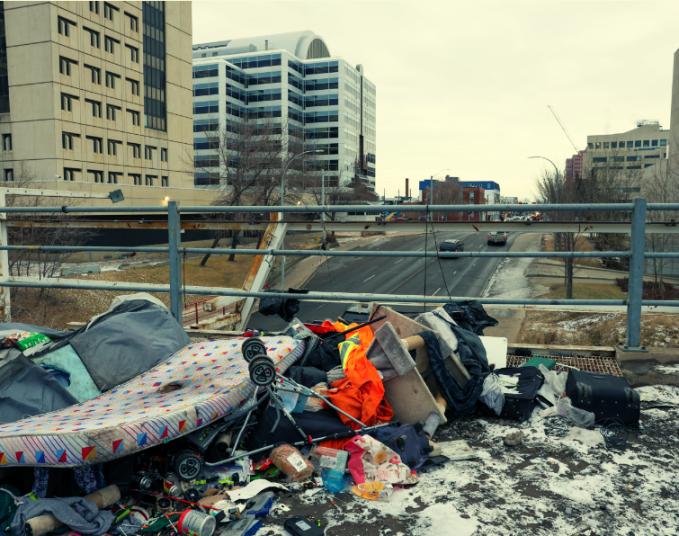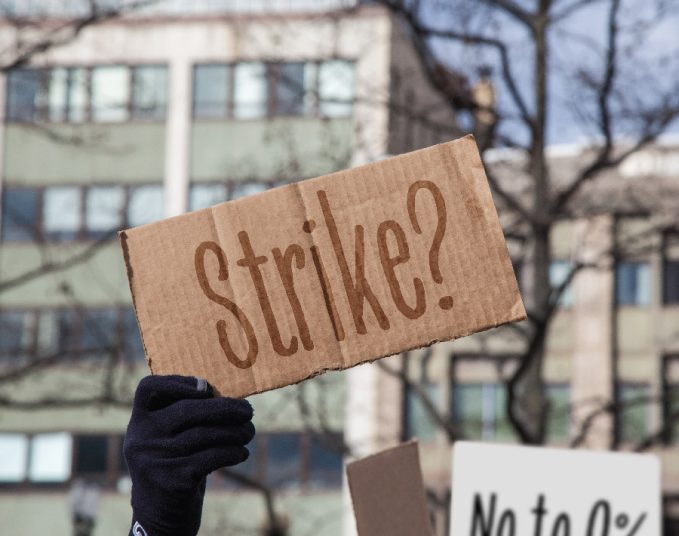From Oxford: e·mer·gen·cy “A serious, unexpected, and often dangerous situation requiring immediate action.”
From Merriam-Webster: e·mer·gen·cy 1. “An unforeseen combination of circumstances or the resulting state that calls for immediate action” or 2. “An urgent need for assistance or relief”
As an editor, I am a big words-have-meaning person. When I see words misused, dragged to a spot where they’ve lost their meaning, I cringe. When I see people on X use “apart” when they mean “a part,” I know somewhere, somehow, a puppy is getting bludgeoned. When I hear sportscasters use the word “unbelievable” to describe something that’s quite believable, I want to scream. And, in hard news, there’s the overuse and misuse of the words “terrorist” and “terrorism” to sensationalize events that are already tough to swallow. By definition, violence without religious or political affiliation cannot be terrorism.
Words are important. They have meaning. And with words comes perception. Unfortunately, more and more, words are abused and misused all in the name of political influence and doublespeak.
Which brings me back to the word, “emergency.”
This week, Edmonton City Council debated a motion from Mayor Amarjeet Sohi to declare an emergency around the housing crisis. The mayor called for a task force to be created; that meetings be held with the federal and provincial governments, along with members of the Confederacy of Treaty Six First Nations; to use $3.5 million in seed funding to kickstart development of affordable housing; and that administration prepare a report on how to better use City land and hurry along existing plans to increase transitional housing.
The measures were supported unanimously, save for the use of the word “emergency,” which passed by a 9-4 vote. It’s important to note that the sole Indigenous councillor in Edmonton, Aaron Paquette, joined with Tim Cartmell, Karen Principe and Sarah Hamilton to oppose the use of the E word.
Why is this important? Because the use of word “emergency” creates expectations. The definition of the word suggests “immediate action” be taken. That’s what the wide majority of us perceive the word to mean, because we paid attention in Grade 1 English. The four dissenting councillors all suggested that misusing that word carried danger. It carried the expectation that something will be done to better the encampment situation post-haste. It suggests that housing can be built quickly.
On Monday, the Community and Public Services Committee heard an update on the city’s housing plan. There are currently 3,100 homeless in the city, and another 46,000 who are in “core housing need.” The City has an urgent need for 1,700 more supportive housing spaces.
Amputations due to frostbite are at a 10-year high. A total of 301 people died in 2023 as a result of houselessness.
To tackle these issues needs coordination between all levels of government, and none of this is happening immediately. This is why the galleries were full at City Hall. This is why hecklers laughed at councillors’ pledges and cried out “genocide.”
And when these problems aren’t tackled right away, this is where the four “nay” councillors feared that the use of the word “emergency” could backfire.
“It’s just words,” said Principe. “It does not activate any levers that council could use to address the crisis.”
Hamilton said that slapping the word “emergency” on Sohi’s package to deal with the housing crisis is a “non sequitur.”
“It runs the risk of desensitizing us to what emergencies mean when a government declares an emergency,” she said.
And Cartmell said that council’s version of what constitutes an emergency is not what the public expects.
“There’s nothing in the definition of ‘emergency’ that says go form another task force, to have another meeting, create another set of terms of reference and pick a meeting place and order the lunch,” he said.
Paquette said that Indigenous people have dealt with displacement since the Road Allowance, since colonization. And he said that when the E word is used incorrectly, “it is powerful, too.”
And he said that using inflammatory language, and shaming other levels of government to come to the negotiating table, isn’t productive. He said that as soon as council declares a state of emergency, they let the other levels of government “off the hook” when it comes to houselessness.
“I want everyone at the table willingly, so we get willing work, rather than grudgingly, so we get inadequate funding.”
Paquette saw the writing on the wall. After council voted, the UCP responded with a scolding, Municipal Affairs Minister Ric McIver said: “It is disappointing that the City of Edmonton would choose to issue a performative declaration suggesting an emergency and implying a lack of response from our government… When the word ‘emergency’ is used, Albertans are used to stepping up and taking action directly, while that is not the intention of this motion.”
Obviously, eight councillors and Mayor Sohi didn’t share those views.
“I’m supportive of declaring an emergency, and not because this is the type of an emergency that can be fixed overnight, but because of the deep urgency of action that is needed,” said Anne Stevenson, who represents the downtown areas that are home to many encampments. “The number of Edmontonians who are without the housing that they need, without the supports that they need, is unacceptable.”
Erin Rutherford said council has received more than 40 memos on houselessness and the housing crisis since she took office after the 2021 election.
“I get that there is criticism out there that this is symbolic. This is not symbolic.”
And Ashley Salvador thanked those who packed the council chambers, noting many of them work on the front lines with the homeless.
“I also want to recognize the people who are no longer able to join us because of our society’s collective failure to support them and care for them when they needed it,” she said.
City councillors met with provincial officials in private before the final emergency vote was held. There are going to be those who will say the UCP deserves to be shamed. There will be those who point to years of playing catch-up when it comes to housing. But, right now, we have a different political reality on our hands. The NDP is now entering a leadership race. For the next several months, the focus of the party will be internal. We don’t know what the NDP will look like when a new leader takes over. The leverage on the left isn’t strong at the moment, so there needs to be a recognition that municipal governments need to shake hands and smile when they meet UCP officials, even it is through gritted teeth.
In 2019, Edmonton declared a climate emergency; and many of the measures taken by the City to combat climate change will take years to come to bear. It doesn’t feel like an emergency, does it? A priority issue, sure… but emergency, nah.
And, the more a word gets tossed around, it loses its meaning. Its impact is diminished. Soon, we’re in danger of the word “emergency” having about as much relevance in Edmonton as the word “unbelievable” does in sports broadcasts. And we don’t know yet if the use of the E word is symbolic or not. It will be borne out by how council acts — and how quickly the City can become a catalyst for change.
Savvy AF. Blunt AF. Edmonton AF.




